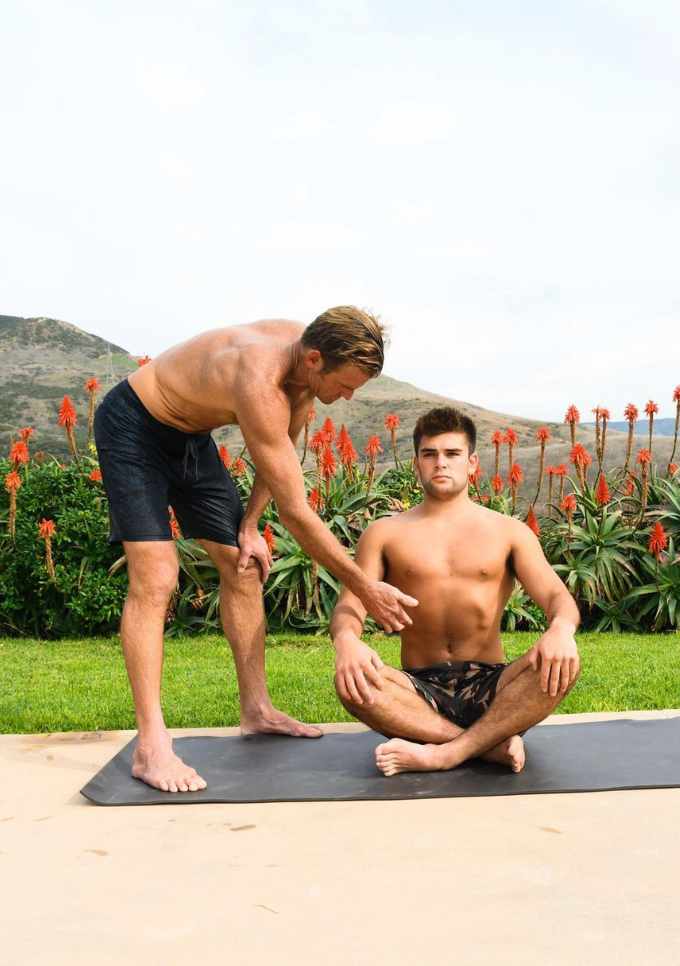

BREATHING TO HELP REDUCE ASTHMA WHILST EXERCISING
Based on the fact that a number of clinical trials have shown that asthma symptoms and the need for asthma medication significantly reduces following the employment of reduced breathing exercises, there is no doubt that overbreathing is a significant contributor to asthma.
The first step to addressing chronic overbreathing is to make the switch from mouth to nasal breathing. While nasal breathing is important for everyone, for people prone to asthma it is vital. When breathing volume is greater than normal, there is a tendency to open the mouth in order to allow more air enter the lungs. People diagnosed with asthma often feel they are not taking in enough air while breathing through the nose, which causes them to breathe through the mouth.
A study at the Mater Hospital in Brisbane found that when the breathing volume of adults with asthma decreased from 14 litres to 9.6 litres per minute, their symptoms reduced by 70 percent, the need for rescue medication decreased by 90 percent, and the need for preventer steroid medication decreased by 50 percent.7
The study found a direct relationship between the reduction of breathing volume and improvement to asthma. The closer breathing volume reduced toward normal, the greater was the reduction of asthma symptoms such as coughing, wheezing, chest tightness, and breathlessness. Furthermore, the trial’s control group – who were taught the hospital’s in-house asthma management program – made zero progress. The reason for this was solely due to the fact that there was no change to their breathing volume.7 Further studies compounded these findings by showing that people with asthma who practiced reducing their breathing volume had far better asthma control with a significantly reduced need for preventive steroid and rescue medication within 3 to 6 months.
Mouth breathing influences asthma in a number of ways:
- Air taken in through the mouth is not filtered of airborne particles, including germs and bacteria
- The mouth is simply not as effective as the nose in conditioning air to the correct temperature and humidity prior to entering the lungs
- Because the mouth provides a larger space to breathe through than the nose, breathing volume will be higher, causing too much carbon dioxide to be expelled from the lungs. Carbon dioxide is a natural “opener” of the smooth muscle in the airways. The loss of carbon dioxide therefore causes asthma airways to narrow even more;
- Unlike nasal breathing, mouth breathing does not allow us to benefit from nasal nitric oxide, which supports the lung’s defensive capabilities.
Taking all these factors into consideration, it is not surprising that mouth breathing causes a reduction in lung function in people with mild asthma, and plays a significant role in the exacerbation of asthma symptoms
Not only is it important to breathe through the nose during rest, it is also beneficial to nasal breathe during physical exercise. In a paper published in the American Review of Respiratory Disease, researchers studied the beneficial effects of nasal breathing on exercise-induced asthma. The study observed that most subjects with asthma spontaneously breathed with their mouths open when instructed to breathe “naturally.” The authors found that mouth breathing during exercise caused the airways to narrow even further. In contrast, when subjects were asked to breathe only through their nose during exercise, exercise-induced asthma did not occur at all. The paper concluded that “the nasopharynx and the oropharynx play important roles in the phenomenon of exercise-induced bronchoconstriction.”
In simple terms, the effects of breathing through the nose are integral to reducing or avoiding exercise-induced asthma completely.
The fact that elite athletes with asthma often favor swimming above other forms of exercise is not a coincidence. During swimming, the face is immersed underwater, reducing the amount of air taken into the lungs and increasing the athlete’s tolerance for carbon dioxide. Although the swimmer may draw his or her breath in through the mouth, the protective effects of reduced breathing are still evident. A child or adult with asthma may also prefer swimming because the water exerts a gentle pressure on the chest and abdomen, further restricting breathing volume and improving athletic performance.
The difference between land-based exercise and swimming in terms of breathing pattern and volume is significant for people with asthma. On land, your breathing pattern during exercise is not restricted the way it is in water, meaning that you can very easily overbreathe, resulting in constricted airways, a reduction in the amount of CO2 in your blood, and a lower BOLT score. For an individual with asthma, overbreathing during rest leads to overbreathing during exercise, which in turn leads to exercise-induced asthma. However, exercising in water naturally causes you to restrict your breathing and lower your breathing volume toward normal, providing a much safer and more productive environment for people with asthma to exercise.
One study showed that in a group of athletes, narrowing of the airways affected 55 percent of football athletes and 50 percent of basketball athletes, but 0 percent of water polo athletes.
With such a glaring disparity, what factors could possibly explain the difference? The answer, as you have probably guessed by now, is simple. Water polo training involves breath holding and swimming underwater, resulting in a higher tolerance to carbon dioxide, increased amounts of nitric oxide and a reduced breathing volume. With a more normal breathing volume, asthma tendencies don’t appear.







